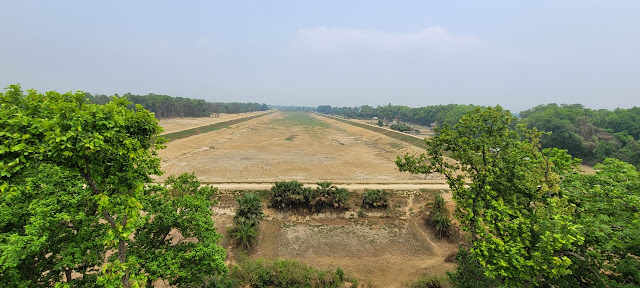The Economist: No going back
Bangladesh
No going back
Apr 19th 2007 DHAKA
From The Economist
The army exiles the country's leading politicians
| |
 | |
ENDING an era in Bangladeshi politics dominated by the two mutually-loathing heads of feuding dynasties, the generals behind the interim administration this week exiled them both. On April 17th, Khaleda Zia (pictured left), leader of the Bangladesh Nationalist Party (BNP) and prime minister until October 2006, agreed to go into exile in Saudi Arabia—which also took in another exiled former prime minister, Pakistan's Nawaz Sharif. The next day Mrs Zia's nemesis, Sheikh Hasina Wajed, prime minister from 1996 to 2001 and leader of the Awami League, the other big party, was declared a "national-security risk" and barred from Bangladesh.
Mrs Zia had, in effect, succumbed to blackmail over the fate of her two sons, both facing corruption charges. Her departure, accompanied by her younger son, was said to be imminent. Her firstborn, Tareque Rahman, is in jail as the main trophy for the army's anti-corruption drive and unlikely to go anywhere. Sheikh Hasina, who was in America, had threatened to come back to Bangladesh on April 23rd to fight murder and corruption charges. Immigration posts were told not to let her in.
With their leaders exiled, the two main political parties face leadership vacuums, after 16 years in which the two bickering "begums" alternated in power in this country of 150m people. The parties are crippled, with many senior members in jail. Prosecutors are, in effect, choosing the parties' leaders for them. Last week, for example, saw the arrest of Moudud Ahmed, a close confidant of Mrs Zia and in the popular mind the "BNP's brain". The army said it found alcohol and more than 200 saris meant for government relief operations for the poor in Mr Ahmed's bedroom.
So pervasive and debilitating is the corruption in Bangladesh's public life that the army's drive is still popular. Fakhruddin Ahmed, head of the interim government installed by the army, has promised a "beautiful Bangladesh" without militancy, intolerance or Islamic extremism. Sadly, this seems a pipe-dream.
Foreign diplomats in Dhaka still give his administration the benefit of the doubt. Mr Fakhruddin has promised a parliamentary election by the end of 2008. But the good intentions of his overstretched interim government matter less than a power struggle in the army. The term of the army chief, General Moeen U Ahmed, expires in June 2008. His main adversary, and probable successor, General Masud Uddin Chowdhury, is widely seen as the driving force behind the state of emergency imposed on January 11th.
With troops on the streets for months, and no end to their deployment in sight, frustration among army officers has been mounting. Senior ones know that a return to civilian politics would probably cost them their jobs. Nor are they likely to back General Moeen, whose time is running out. Rumours of a counter-coup led by General Masud surfaced on March 26th, Bangladesh's independence day. They proved unfounded. But events since have not dispelled the impression of disunity within the armed forces.
The legal cover for the administration the generals are backing is wearing thin. The initial 120 days of emergency rule allowed under the battered constitution expire on May 10th. But the state of emergency can be extended, and there seem few other options. The big parties are in shambles. Muhammad Yunus, a Nobel-prize-winning microcredit pioneer, seen as a potential saviour earlier this year when he announced plans to enter politics and launched a new party, has walked off the pitch. Already there is talk in Dhaka that the army might form its own civilian party—or not bother with such niceties and declare outright martial law.


Comments
Post a Comment